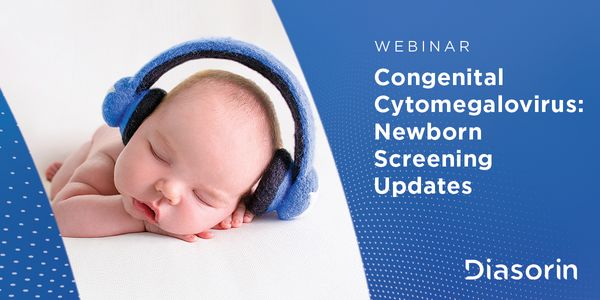Managing Editor of the journal Lupus, Chairman of the Antiphospholipid Syndrome Laboratory Diagnostics and Trends Task Force, Executive Committee Member of the APS alliance for clinical tri
BIOGRAPHY

NOV 23, 2015 7:00 AM PST
WEBINAR: New specificities in the antiphospholipid syndrome: The importance of testing for aPS/PT and anti-β2 Domain 1 antibodies (Spanish Language)
Abstract
Presence of anti-PS/PT IgG or IgM antibodies indicates a high risk category of patients
Antiphospholipid antibodies are not directed against phospholipids, but rather to phospholipid-protein complexes. Recent evidence suggests that antibodies to the complex of PS and PT (PS/PT) identifies a distinct subset of patients with very high likelihood of adverse events. Antibodies targeted to either PS or PT yield less clinically relevant information as antibodies towards the PS/PT complex.
Recent studies have shown that the risk of thrombotic events increases with the number of positive test results in APS patients and aPL carriers. Triple positivity for LAC, anti-β2GP1, and PS/PT demonstrated the highest diagnostic accuracy out of 23 possible combinations of aPL tests.
Inclusion of PS/PT testing into routine testing can improve patient outcome.
Anti-β2GP1 domain 1 antibodies are highly specific for the diagnosis of APS and may help support therapeutic decision making
Anti-β2GP1 antibodies target multiple epitopes in the same molecule. A growing body of evidence indicates that domain 1 is the most relevant epitope targeted by anti-β2GP1 antibodies in patients with APS. Many studies have shown that anti-domain 1 antibodies identify a distinct population of patients with a high risk of thromboembolic events, despite therapy. In addition, carriers are high risk to develop a first thromboembolic event.
Antiphospholipid antibodies are not directed against phospholipids, but rather to phospholipid-protein complexes. Recent evidence suggests that antibodies to the complex of PS and PT (PS/PT) identifies a distinct subset of patients with very high likelihood of adverse events. Antibodies targeted to either PS or PT yield less clinically relevant information as antibodies towards the PS/PT complex.
Recent studies have shown that the risk of thrombotic events increases with the number of positive test results in APS patients and aPL carriers. Triple positivity for LAC, anti-β2GP1, and PS/PT demonstrated the highest diagnostic accuracy out of 23 possible combinations of aPL tests.
Inclusion of PS/PT testing into routine testing can improve patient outcome.
Anti-β2GP1 domain 1 antibodies are highly specific for the diagnosis of APS and may help support therapeutic decision making
Anti-β2GP1 antibodies target multiple epitopes in the same molecule. A growing body of evidence indicates that domain 1 is the most relevant epitope targeted by anti-β2GP1 antibodies in patients with APS. Many studies have shown that anti-domain 1 antibodies identify a distinct population of patients with a high risk of thromboembolic events, despite therapy. In addition, carriers are high risk to develop a first thromboembolic event.
You May Also Like
OCT 29, 2025 7:00 AM PT
This presentation explores the scientific rationale, preclinical validation, and early clinical translation of STAR-LLD—a novel, continuous low-dose percutaneous lenalidomide delivery...
OCT 29, 2025 | 8:00 AM
In today’s rapidly evolving landscape of next-generation sequencing (NGS), researchers face mounting pressure to deliver high-quality data from increasingly diverse and challenging sam...
OCT 29, 2025 | 9:00 AM
C.E. CREDITS
Congenital cytomegalovirus (cCMV) is the most common infectious cause of birth defects and non-genetic hearing loss in the United States, yet it remains underdiagnosed due to the absence of...
OCT 29, 2025 | 11:00 AM
C.E. CREDITS
This webinar explores the evolving role of MRSA surveillance in healthcare, highlighting how molecular screening methods impact infection prevention and antimicrobial stewardship strategies....
OCT 30, 2025 | 9:00 AM
Aging is associated with progressive white matter degeneration, which impairs brain structure and function. Defects in myelinating glial cells, combined with chronic neuroinflammation, contr...
OCT 30, 2025 | 9:00 AM
Cell-free DNA (cfDNA) has emerged as a powerful biomarker for monitoring allograft health and detecting rejection in solid organ transplantation. Since 2022, the Paris Transplant Group-PITOR...
Loading Comments...
Please update your information
Certificate of Participation
Thank you for choosing Labroots. Please note that a Certificate of Participation does NOT count towards Continuing Education Credits.
DOWNLOAD CERTIFICATE
DOWNLOAD CERTIFICATE
You must watch the entire webinar to receive your certificate of participation.
You must attend the event before receiving your certificate of participation.
You must register for the event first.
Certificate is no longer available for this event.
You must be logged in to retrieve your certificate.






